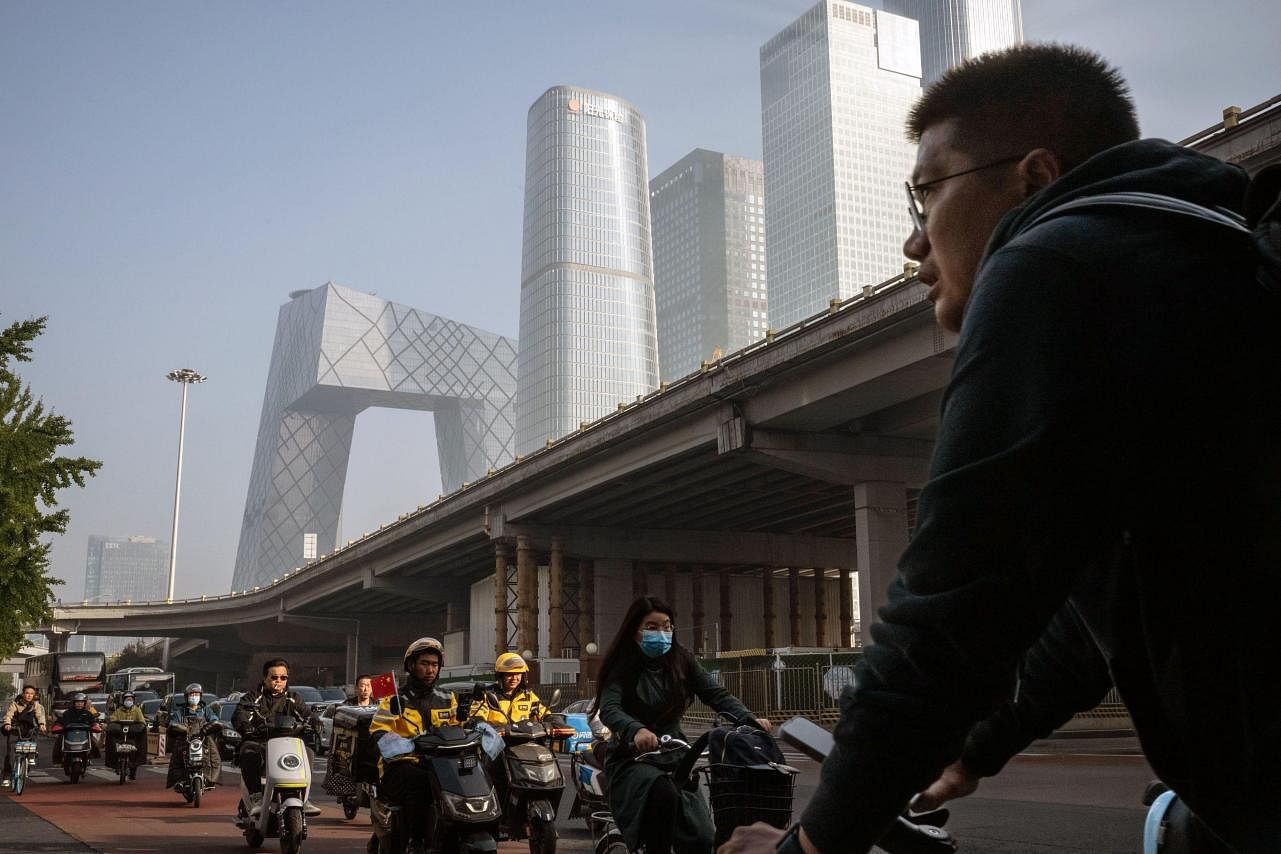Credit Suisse Disbands China Onshore Wealth Unit, Dozens Depart
Credit Suisse dismissed its entire wealth management team in China, scrapping its ambition to become one of the biggest foreign money managers in the country
Securities venture CEO Wang leaves as wealth push falters .
UBS declines to take on CS wealth staff after merger
Chinese banks drop out of top five global equity underwriters
CHINESE brokerages fell from the top of the global equity-underwriting league tables this year as offerings slowed in mainland markets, a consequence of the country’s tightened regulations amid an economic slump.

Goldman Sachs Group reclaimed the title of the busiest equities underwriter worldwide from Citic Securities, which slid down to the sixth spot in this year’s league table compiled by Bloomberg. China International Capital dropped out from the top five.
A flood of share offerings seen in 2022 across bourses in Shanghai, Shenzhen and Beijing dramatically slowed this year, mirroring the country’s slumping economy and stock markets. The pace of decline in China’s underwriting business accelerated since late August, when Beijing introduced measures to slow initial public offerings (IPOs) and shift investors’ attention back to secondary trading markets.
Proceeds from China’s onshore IPOs fell 33 per cent on-year to US$55 billion so far in 2023, according to Bloomberg-compiled data. Additional share sales in mainland China are down 55 per cent during the period, versus a 11 per cent average increase globally.
Chinese investment banks could lose underwriting market share to global peers as regulators turn cautious in approving new listings onshore in order to focus on stabilising the secondary market, Sharnie Wong, a Bloomberg Intelligence analyst in Hong Kong, said.
The ranking consists of underwriting for equities and equity-linked instruments issued globally, such as share placements and convertible bonds. Goldman topped Bloomberg’s global equities and equity-linked league table from 2019 to 2021.
Chinese companies raised a record amount through IPOs last year, defying a global slump and bringing hopes to bankers in Asia that the end of Covid Zero policy would boost activity even further. But rising woes tied to the country’s economic recovery, followed later by stricter rules for new offerings, led to a slowdown in listings.
The China Securities Regulatory Commission announced in late August it would temporarily slow down the pace of IPOs in the country. Chinese authorities also lowered the stamp duty on stock trades.
While the measures weighed on new share sales, it did little to stem the markets’ declines. The CSI 300 benchmark for onshore equities is down about 13 per cent this year, extending a 22 per cent slump in 2022.
In Hong Kong, the situation is even worse. IPO proceeds are down 60 per cent, heading to the worst full-year performance in over two decades. The Hang Seng Index is poised for its fourth yearly decline.
Still, China’s domestic market remains large and active despite the slump. The country hosted 192 debuts that raised at least US$100 million this year, versus 43 in the US, 29 in Europe and only 16 in Hong Kong.
If approvals for new share sales in the mainland remain hard to obtain in 2024, Hong Kong may end up hosting more IPOs that were initially expected to happen in the mainland, according to Ernst & Young’s Asia-Pacific IPO Leader Ringo Choi.
“With the tightening of A-share IPO policies phasing in, companies planning to go public should re-examine their short to medium-term development, be on the lookout for opportunities for mergers and acquisitions, and also seek overseas listing opportunities in a timely manner,” Choi said.
“Consequentially more companies are expected to change their listing venue to Hong Kong,” he added. (Bloomberg)





